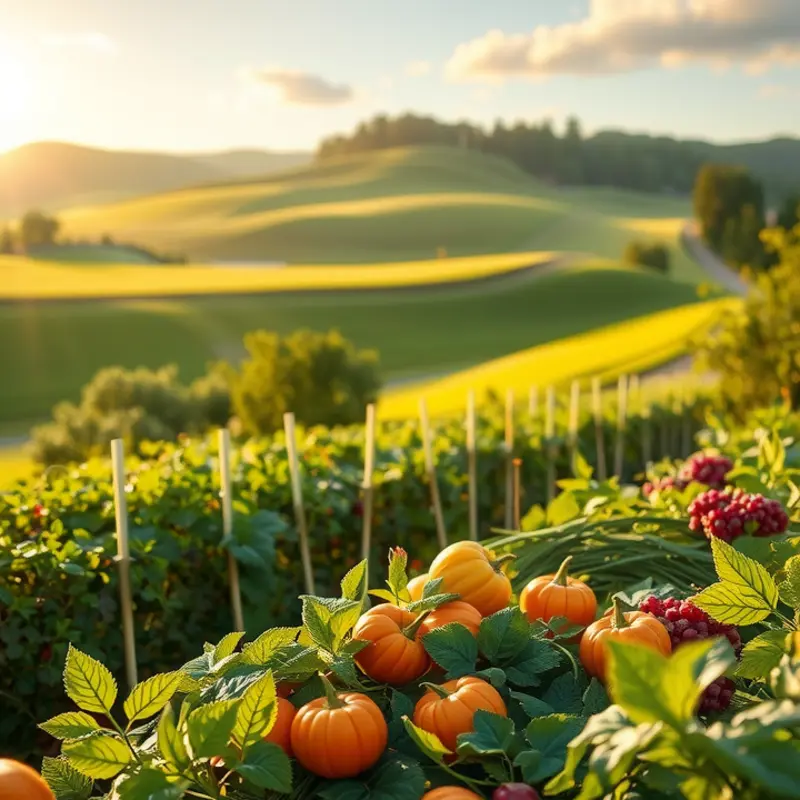Sustainable eating supports both personal health and planetary well-being. Fats and spreads play a crucial role in our diets, yet they often come from unsustainable sources. By selecting eco-friendly options, individuals can enjoy tasty, nutritious foods while minimizing their ecological impact. The choices we make can encourage better agricultural practices, reduce carbon emissions, and foster biodiversity. This guide offers practical insights into sustainable fats and spreads, making it easier for you to incorporate positive change into your pantry.
Understanding Sustainable Fats

Exploring sustainable fats entails delving into the multitude of choices available, understanding their sources, and recognizing their environmental impacts. The fats we consume come in two primary types: saturated and unsaturated. Saturated fats, often solid at room temperature, are typically found in animal products like butter and lard. In contrast, unsaturated fats are usually liquid at room temperature and are mostly derived from plant sources.
The environmental impacts of fats largely depend on their origin. Animal-based fats usually have a higher ecological footprint due to the resources required for raising livestock, including land, water, and feed. The greenhouse gas emissions associated with animal agriculture further exacerbate the environmental toll. In contrast, plant-based fats are generally more eco-friendly. They usually require fewer resources and produce significantly lower emissions.
Among unsaturated fats, monounsaturated and polyunsaturated fats are regarded as healthier. Monounsaturated fats, like those found in olive oil and avocado oil, are praised for their heart-health benefits. Polyunsaturated fats include omega-3 and omega-6 fatty acids, essential for brain function and cell growth. Plant sources such as flaxseeds and walnuts offer these beneficial fatty acids, providing a more sustainable choice compared to fish oils, which often pose sustainability concerns.
Plant-based fats provide numerous health advantages over their animal-derived counterparts. They contain essential fatty acids and antioxidants while being cholesterol-free. Nut butters, formed from almonds, cashews, and peanuts, are excellent sources of healthy unsaturated fats. These can significantly reduce the risk of heart disease while promoting brain health. With the correct production practices, such as supporting sustainable agriculture and fair-trade farming, their environmental impact can be minimal.
Olive oil is the quintessential sustainable fat, especially when sourced from farms practicing eco-friendly cultivation. It requires less water and contributes less to deforestation, making it a superior choice for environmentally conscious consumers. Avocado oil shares similar benefits and is often cultivated using techniques that prioritize biodiversity and soil health.
In making conscious choices about fats and spreads, understanding these nuances is key. Opting for sustainable, plant-based fats not only benefits personal health but also contributes positively to global environmental goals. For those interested in maximizing nutrition while minimizing waste, exploring practical ingredient batching techniques can further enhance one’s kitchen efficiency. Such strategies allow for thoughtful consumption that aligns with both health and sustainability objectives.
By prioritizing ingredients like sustainably sourced olive oil and nut butters, consumers can significantly impact their carbon footprint and support sustainable agricultural practices. As we continue this journey of mindful eating and environmental stewardship, the choices we make with fats can lead to healthier lives and a healthier planet.
Top Sustainable Spreads for Every Kitchen

Choosing sustainable spreads offers a delicious pathway toward embracing ecological responsibility. Traditional butter and margarine, while appealing, can often carry hefty environmental footprints. By incorporating plant-based alternatives into our diets, we naturally lend a hand to more sustainable living. Let’s explore some of these delectable options.
Almond Butter: A beloved staple, almond butter boasts an inviting nutty flavor. It’s a fantastic alternative to both butter and peanut butter. Almond butter is versatile—spread it over whole-grain toast, add it to smoothies, or use it as a base for dressings. To make your own, roast a cup of almonds until fragrant, then blend in a food processor with a drizzle of olive oil and a pinch of sea salt until smooth.
Sundried Tomato Spread: This vibrant, umami-rich option is perfect for those craving savory notes. Sundried tomato spread harmonizes beautifully with Italian cuisine and beyond. It serves as a delightful topping for bruschetta or a flavorful addition to pasta dishes. To create a homemade version, finely blend sundried tomatoes, olive oil, garlic, and fresh basil leaves. Season with black pepper for a taste that bursts with flavor.
Hummus: Hummus, made from chickpeas, olive oil, and tahini, provides a protein-rich alternative ideal for sandwiches and wraps. This Mediterranean classic is easy to prepare at home. Blend cooked chickpeas, tahini, lemon juice, garlic, and olive oil until creamy. For a twist, try adding roasted red peppers or a splash of fresh lemon juice. Pair it with pita, crudités, or use it as a pizza base in lieu of tomato sauce.
Integrating these spreads isn’t just about substituting dairy fats. It’s an opportunity to experiment with flavors and textures while contributing to a healthier planet. By choosing homemade or locally sourced ingredients, we also minimize the carbon footprint associated with production and transport. It’s worth considering the storage aspects of these homemade treats for optimal freshness and reduced waste. For tips on storing items like sauces and spreads efficiently and safely, visit the Eco-smart Kitchen Storage guide.
Incorporating sustainable spreads into everyday meals can redefine our relationship with food, making meal prep a creative and environmentally-friendly adventure. Turn a simple snack into a gourmet experience by pairing these spreads with locally baked bread, or brighten up a quick weekday lunch by using them as sandwich fillers alongside fresh vegetables. The possibilities are both endless and rewarding, fostering a diet that’s nourishing for both body and conscience.
Final words
Sustainable fats and spreads offer an excellent way to enhance your meals while making responsible food choices. By opting for products that prioritize environmental health and ethical sourcing, you can contribute positively to the planet. Whether you choose plant-based oils, nut butters, or wholesome homemade spreads, each choice matters. The journey toward sustainable eating can be enjoyable and delicious, encouraging a lifestyle that respects the environment. Embrace these options in your kitchen, and inspire others to join you in promoting a healthier, more sustainable future.








